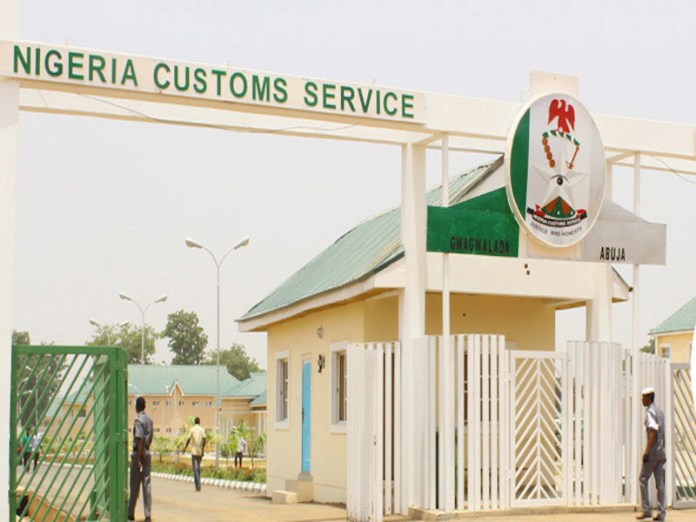- Customs Generate Highest Monthly Revenue of N100bn
The Nigeria Customs Service on Thursday said it recorded its highest-ever monthly revenue collection of N100.1bn in May this year.
The Comptroller-General of Customs, Hameed Ali, confirmed this at the graduation of Senior Division Course One participants held in Abuja.
Forty senior officers of the NCS graduated from the Nigeria Customs Commands and Staff College.
The event was attended by Vice President Yemi Osinbajo; Chief of Army Staff, Tukur Buratai; Chief of Air Staff, Sadiq Abubakar; Minister of Finance, Mrs. Kemi Adeosun, and other top officials of the government.
The Customs CG said the feat recorded in the area of revenue generation was as a result of the reforms embarked upon by the management of the NCS under his leadership.
He stated that with the blockage of leakages in revenue, the service was ready to generate more revenue for the Federal Government.
Ali said, “Last month, May 2018, was the month we realised our highest collection in terms of monthly revenue. As it stands today, we collected a total of N100.1bn.
“We do hope that this feat will continue and we are hoping that the inflow of imports will continue and the blockage of the leakages will continue at the rate we have. Then we will see an increase in revenue.”
As a result of the feat recorded in revenue generation, the Customs boss called on the Federal Government to look into the salary structure of the service.
He noted that currently, officers and men of the Customs were the least paid out of all the members of staff of revenue-generating agencies in the country.
The CG said for the officers and men of the service to be motivated to perform their duties effectively, there was a need to have a better incentive system that would be commensurate with what was obtainable in other revenue-generating agencies in the country.
Ali stated, “To whom much is given, much is expected; the Nigerian Customs today is the least paid among its peers of revenue-generating organisations.
“With this monumental increase in what we are collecting for the government, I, therefore, plead that we should be considered with our peers in the service. I believe that if we do this, it will help in forgetting corruption in the service.”
He also called on the board of the Customs to consider legislation that would make it possible for the college to be self-funded rather than wait for budgetary provisions from the NCS.
Ali challenged the graduates to bring the knowledge they acquired at the college to bear to assist in taking the service to greater heights.

 Forex3 weeks ago
Forex3 weeks ago
 Naira3 weeks ago
Naira3 weeks ago
 Billionaire Watch3 weeks ago
Billionaire Watch3 weeks ago



 Naira3 weeks ago
Naira3 weeks ago






 Naira2 weeks ago
Naira2 weeks ago




 Naira2 weeks ago
Naira2 weeks ago




 Naira4 weeks ago
Naira4 weeks ago






 Naira2 weeks ago
Naira2 weeks ago
























